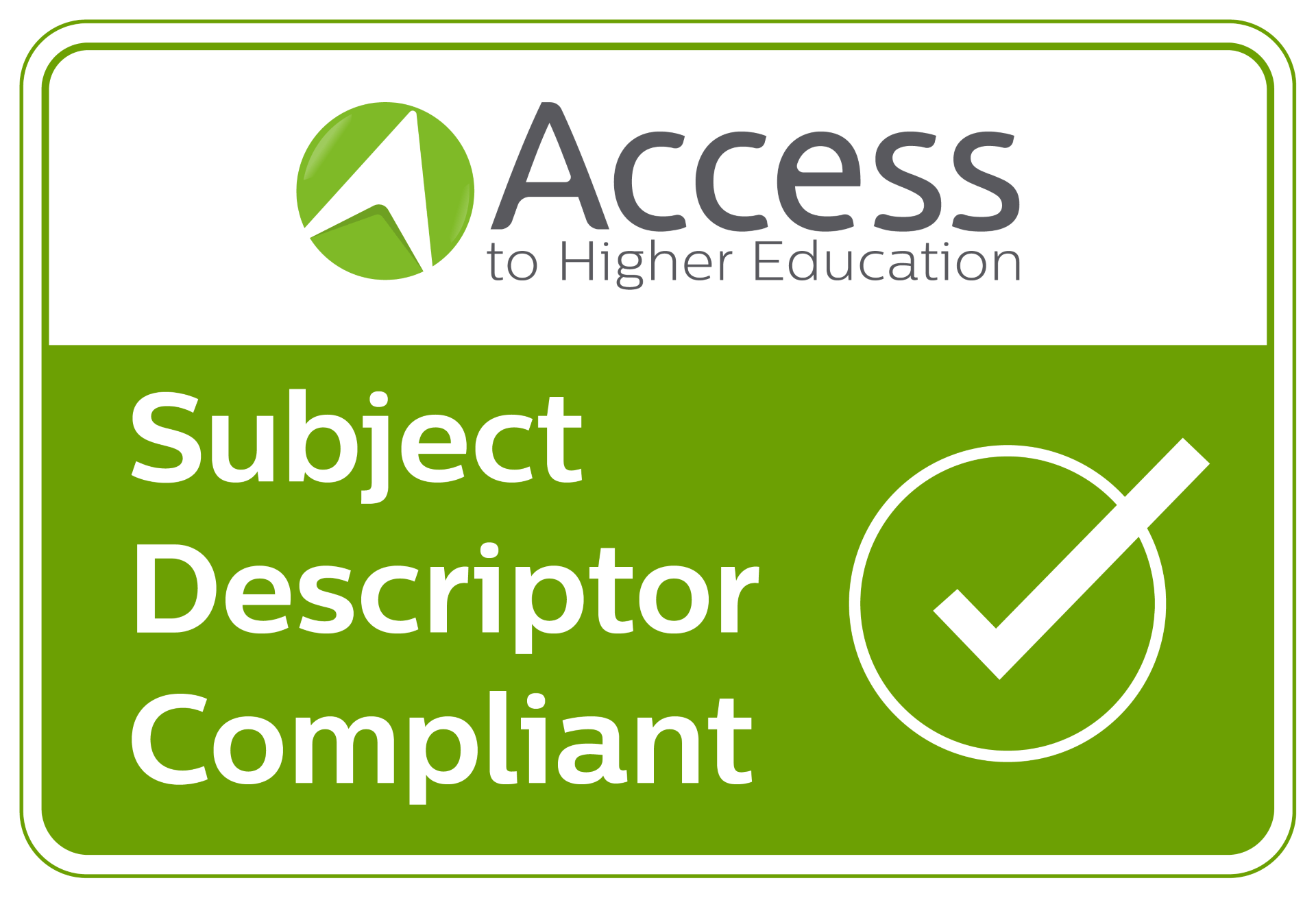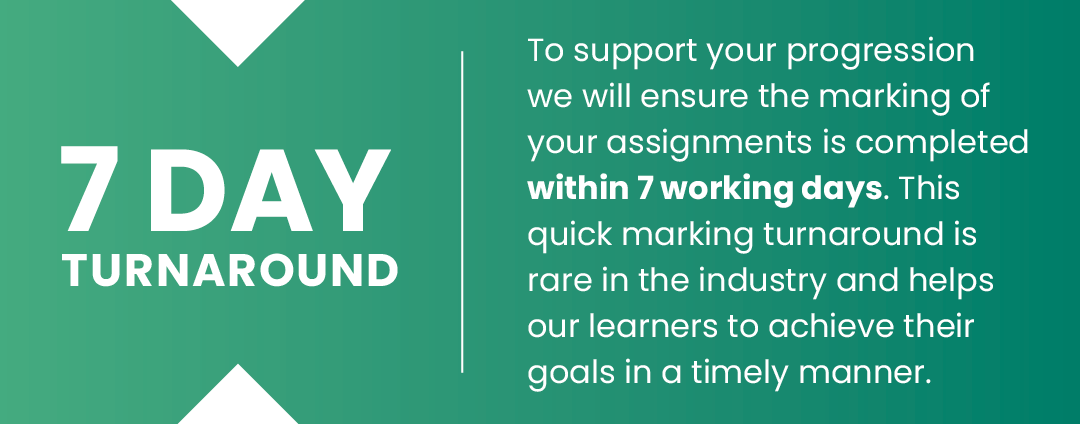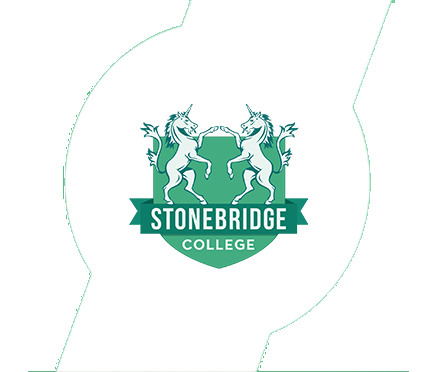Access to Higher Education Diploma (Midwifery).

Access to Higher Education Diploma (Midwifery)
This Course at a Glance
- 100% online learning
- Qualification is equivalent to 3 A-Levels
- Crucial midwifery knowledge
- Stepping stone towards degree-level study
- Flexible payment options
- Nationally recognised qualification
About Your Diploma
A Midwife is arguably one of the most important people during an expectant mother’s pregnancy journey. They are the first point of call for support and professional advice, helping the individual make informed decisions over the course of the pregnancy. A Midwife is not only expected to have healthcare knowledge, but they require strong interpersonal skills and the ability to put a mother’s mind at ease.
The Access to Higher Education Diploma (Midwifery) provides you with comprehensive foundation knowledge of midwifery that will put you in a strong position to study at degree level. The course is a stepping stone towards a potential career in which you will be helping many mothers throughout their pregnancies, as well as the birthing process.
The roles and responsibilities of a Midwife are varied, with predominant focus being on providing care, support, and healthcare advice to expectant mothers. If you become a qualified Midwife, you will also assist with postnatal care in which you will help the mother learn how to feed and care for their newborn.
As part of the Access to Higher Education Diploma (Midwifery), you will learn key principles of various factors, including nutrition and digestion, as well as foetal development, monitoring and intervention. The course is ideal for individuals who are keen to return to education but don’t have the A Levels required to earn a place at university.

Getting Started
Learning through Stonebridge Associated Colleges gives you the freedom to study from the comfort of your own home. With the course being taught online, you can tailor your study schedule around your existing commitments. Whether you have young children to look after or work full-time, you can study at a time that fits into your schedule.
As soon as you enrol, you will have access to all of the course materials you need to complete the Access to Higher Education Diploma (Midwifery). Rather than spend all day, every day in a classroom, you can learn from the comfort of your own home. Plus, you will get support from a team of experienced and dedicated tutors.
Every learner is given an Individual Learning Plan that outlines submission deadlines for assignments, helping you keep on track. You have two years to complete an Access to Higher Education Diploma, but on average, students take around 9-12 months.
- Access your course materials immediately
- Tutor support via our market-leading platform
- Study around existing commitments
- Progress as quickly as you’d like
- Tailored individual learning plan to help you succeed
- Engaging content; from videos to interactive quizzes
- Industry-leading 5 days marking turnaround
On successful completion of the Access to Higher Education Diploma (Midwifery), (QAA aim code: 40014186), you will receive a Skills & Education Group Access, QAA recognised, Access to Higher Education Diploma at Level 3. As part of your programme, you will also receive help as well as guidance on your university application and the research you need to do to get the most out of your diploma.
An access validating agency with a strong social purpose to recognise achievement, particularly for those who have benefited least from their previous educational experiences, Skills and Education Group Access supports the needs of learners, providers, businesses and communities.
As part of the Awarding Organisation requirements, to receive certification for this training course you must be subscribed for a minimum period of 9 months. The minimum subscription period is measured in total months subscribed, which do not have to be consecutive.
This means that if your personal circumstances change (time available to study, financial pressures etc.), you can cancel/pause your study and payments at any time. If you decide to return to your studies at a later date, you can simply reactivate your subscription and continue from where you left off (we will save all your course progress). Using our subscription service you are not tied into a credit agreement.
To study an Access to HE Diploma you must be resident in the UK and have a UK postcode.
You must hold Level 2 qualifications in both English and Maths, or be working towards them alongside studying your Access to Higher Education Diploma.
University Entry Criteria
It must be reiterated that each university will set its own admission criteria. So, you must check with your desired institution if your Access to HE Diploma and other qualifications will be accepted.
In many cases, to get started on healthcare courses at university, you will need:
- A certain number of credits passed with a merit or a distinction grade
- A face-to-face interview at the university
- Literacy and numeracy assessments provided by the university
- Course-related work placements or work experience
- GCSE Grade C/4 or above in Maths and English (or equivalent Level 2 such as Functional Skills/Key Skills, etc.)
It is your responsibility to check that your Access to HE Diploma will be accepted as part of these entry requirements for your chosen degree. Stonebridge will not be held accountable if completing this Access to Higher Education Diploma doesn’t secure you a position with a higher education institution.
Minimum Age Restriction
This course is ideally suited to those who have completed full-time education but have not achieved the grades required to get into university.
Average Completion Timeframe
The average time it takes our learners to complete the course is 9-12 months.
Assessment Requirements
A range of assessment methodologies are used, including: academic report, essay, case study analysis, illustrated report, journal article, portfolio, academic poster, presentation (video and audio recording), developing promotional activity, series of questions, academic writing skills tasks.
In addition to the qualification units, you will also be required to complete short introductory tasks at the start of your course to support the development of your academic study skills.
Exams Required
There are no exams included in the assessment of the course.
Additional Requirements
Learners must be actively studying for a minimum of six months before results can be ratified and certificates ordered. The six month period does not start until you have completed and passed the course induction and you must be submitting assignments regularly (in line with the deadlines in your Individual Learning Plan) to meet this six month requirement. Certificates can only be issued once your course is paid for in full.
Certification Timeframe
You can expect to receive your certificate 12-16 weeks from your final assignment being marked and graded, depending on the time of year. You will be provided with regular updates throughout the certification process so that you are fully informed of your individual timeframes.
Module 1: Academic Writing Skills
Upon successful completion of this module, you will:
- Be able to structure a written response
- Be able to develop a structured response to a plan
- Be able to present the response appropriately for audience and purpose
- Understand how to apply academic writing principles to own work
Module 2: Reading and Note Making
Upon successful completion of this module, you will:
-
Understand a range of reading strategies
-
Understand the use of language in terms of the purpose and context of a range of texts
-
Be able to use methods for developing notes from a range of sources
Module 3: Healthcare Communication
Upon successful completion of this module, you will:
-
Understand the methods and barriers of communication in healthcare
-
Be able to analyse the importance of good communication skills in healthcare
-
Understand the importance of confidentiality and record keeping
Module 4: Professional Behaviours: Nursing and Health Professionals
Upon successful completion of this module, you will:
- Understand the characteristics required to be a health professional making reference to the relevant professional and regulatory body's and the Professional Standards Authority standards for registration in relation to, patient-centred care and concepts of professionalism as they apply to conduct, performance and ethics of those on the relevant professional and regulatory body's register
- Understand effective communication and teamworking skills
- Know how to manage risk and deal effectively with problems
- Reflect on own personal and professional practice and develop a personal and professional development plan
Module 5: The Structure and Function of Cells
Upon successful completion of this module, you will:
-
Understand cellular structure and organisation
-
Be able to analyse cellular activity
-
Be able to analyse the cell cycle
Module 6: Equality, Diversity and Inclusion in Healthcare Settings
Upon successful completion of this module, you will:
-
Know the key concepts related to Equality, Diversity and Inclusion (EDI)
-
Understand key legislation and regulations related to EDI in healthcare
-
Be able to evaluate the effectiveness of NHS policies and/or initiatives in promoting EDI
Module 7: Human Reproduction Growth and Development
Upon successful completion of this module, you will:
-
Be able to analyse the structure and function of the human reproductive system
-
Be able to evaluate how hormones regulate the reproductive system throughout life
-
Understand the sequence of events from conception to childbirth
Module 8: Numeracy in a Health Context
Upon successful completion of this module, you will:
- Understand and use the four rules of number including in relation to units of measure
- Understand and use decimals, fractions and percentages, including in relation to units of measure
- Know how to use a calculator to solve problems and use appropriate tools to check their answers
Module 9: Professionalism and Multidisciplinary Teams
Upon successful completion of this module, you will:
-
Understand the impact of changes to the roles and responsibilities of a chosen health care professional
-
Understand regulation as a chosen health care professional
-
Be able to evaluate the effectiveness of the multidisciplinary team approach to working in a chosen health care setting
Module 10: Human Musculoskeletal System
Upon successful completion of this module, you will:
-
Understand the human skeleton and how it relates to locomotion
-
Be able to analyse muscle contraction
-
Understand the development of bone
Module 11: Early Attachment and Development
- Understand the importance of early relationships in child development
- Understand explanations of the development of individual differences
- Be able to evaluate strategies for supporting healthy child development
Module 12: Foetal Development, Monitoring and Intervention
Upon successful completion of this module, you will:
- Understand the development of a healthy embryo and foetus
- Understand antenatal foetal monitoring methods before labour
- Understand the monitoring of the foetus during labour
- Understand the detection and possible interventions of specific foetal disorders and disabilities
- Understand the process of miscarriage and termination
Module 13: Endocrine System
Upon successful completion of this module, you will:
-
Understand terms hormone and endocrine gland
-
Be able to analyse homeostasis and feedback mechanisms
-
Understand the action of hormones
Module 14: Pregnancy and Health
Upon successful completion of this module, you will:
- Understand how hormones regulate the reproductive system and different stages of life
- Understand development, diagnosis, monitoring and potential risks of pre-eclampsia
- Understand the dangers of substance misuse in pregnancy
Module 15: Nervous System
- Understand the basic structure and function of the nervous system
- Understand the nature of nerve impulses
- Be able to assess the principles of synaptic transmission
Module 16: Hormone Regulation of Human Reproduction and Development
Upon successful completion of this module, you will:
- Understand how hormones regulate reproduction
- Understand the sequence of events from conception to childbirth
- Understand how hormones regulate the reproductive system and different stages of life
Module 17: Infection and Immunity
Upon successful completion of this module, you will:
-
Understand how the human body responds to infection
-
Understand the cause and transmission of different pathogens
-
Be able to analyse how infections can be prevented by vaccination
-
Understand the mechanism of action of antibiotics
In addition to the qualification units, you will also be required to complete a course induction which comprises of three short introductory tasks to support the development of your academic study skills.

At the end of each unit, you will have an assignment to complete. After submitting your assignment, you will receive feedback from your tutor, giving you guidance and advice that will help you progress through to the next unit.
In addition to the qualification units, you will also be required to complete short introductory tasks at the start of your course to support the development of your academic study skills.
To achieve the Access to Higher Education Diploma (Midwifery), you will need a total of 60 credits, with 45 coming from graded units containing academic knowledge. The remaining 15 will come from ungraded units, such as study skills.
What's Included
- All study materials
- Study Guide
- Full Tutor and Admin support
- The course fee includes the awarding body registration and certification fee (valued at up to £96.00).
VALUE
Annual
- 100% Online
- Full Tutor Support
- No Credit Checks or Credit Agreement
Monthly
- 100% Online
- Full Tutor Support
- No Credit Checks or Credit Agreement
Free 7-Day Trial
Register for a 7-day FREE trial (your payment details will be taken at checkout but not charged). Once the trial period ends you will be charged the monthly fee unless you cancel. Cancel Anytime. No Commitment.- 100% Online
- Full Tutor Support
- No Credit Checks or Credit Agreement
This Course at a Glance
- 100% online learning
- Qualification is equivalent to 3 A-Levels
- Crucial midwifery knowledge
- Stepping stone towards degree-level study
- Flexible payment options
- Nationally recognised qualification
About Your Diploma
A Midwife is arguably one of the most important people during an expectant mother’s pregnancy journey. They are the first point of call for support and professional advice, helping the individual make informed decisions over the course of the pregnancy. A Midwife is not only expected to have healthcare knowledge, but they require strong interpersonal skills and the ability to put a mother’s mind at ease.
The Access to Higher Education Diploma (Midwifery) provides you with comprehensive foundation knowledge of midwifery that will put you in a strong position to study at degree level. The course is a stepping stone towards a potential career in which you will be helping many mothers throughout their pregnancies, as well as the birthing process.
The roles and responsibilities of a Midwife are varied, with predominant focus being on providing care, support, and healthcare advice to expectant mothers. If you become a qualified Midwife, you will also assist with postnatal care in which you will help the mother learn how to feed and care for their newborn.
As part of the Access to Higher Education Diploma (Midwifery), you will learn key principles of various factors, including nutrition and digestion, as well as foetal development, monitoring and intervention. The course is ideal for individuals who are keen to return to education but don’t have the A Levels required to earn a place at university.

Getting Started
Learning through Stonebridge Associated Colleges gives you the freedom to study from the comfort of your own home. With the course being taught online, you can tailor your study schedule around your existing commitments. Whether you have young children to look after or work full-time, you can study at a time that fits into your schedule.
As soon as you enrol, you will have access to all of the course materials you need to complete the Access to Higher Education Diploma (Midwifery). Rather than spend all day, every day in a classroom, you can learn from the comfort of your own home. Plus, you will get support from a team of experienced and dedicated tutors.
Every learner is given an Individual Learning Plan that outlines submission deadlines for assignments, helping you keep on track. You have two years to complete an Access to Higher Education Diploma, but on average, students take around 9-12 months.
- Access your course materials immediately
- Tutor support via our market-leading platform
- Study around existing commitments
- Progress as quickly as you’d like
- Tailored individual learning plan to help you succeed
- Engaging content; from videos to interactive quizzes
- Industry-leading 5 days marking turnaround
On successful completion of the Access to Higher Education Diploma (Midwifery), (QAA aim code: 40014186), you will receive a Skills & Education Group Access, QAA recognised, Access to Higher Education Diploma at Level 3. As part of your programme, you will also receive help as well as guidance on your university application and the research you need to do to get the most out of your diploma.
An access validating agency with a strong social purpose to recognise achievement, particularly for those who have benefited least from their previous educational experiences, Skills and Education Group Access supports the needs of learners, providers, businesses and communities.
Module 1: Academic Writing Skills
Upon successful completion of this module, you will:
- Be able to structure a written response
- Be able to develop a structured response to a plan
- Be able to present the response appropriately for audience and purpose
- Understand how to apply academic writing principles to own work
Module 2: Reading and Note Making
Upon successful completion of this module, you will:
-
Understand a range of reading strategies
-
Understand the use of language in terms of the purpose and context of a range of texts
-
Be able to use methods for developing notes from a range of sources
Module 3: Healthcare Communication
Upon successful completion of this module, you will:
-
Understand the methods and barriers of communication in healthcare
-
Be able to analyse the importance of good communication skills in healthcare
-
Understand the importance of confidentiality and record keeping
Module 4: Professional Behaviours: Nursing and Health Professionals
Upon successful completion of this module, you will:
- Understand the characteristics required to be a health professional making reference to the relevant professional and regulatory body's and the Professional Standards Authority standards for registration in relation to, patient-centred care and concepts of professionalism as they apply to conduct, performance and ethics of those on the relevant professional and regulatory body's register
- Understand effective communication and teamworking skills
- Know how to manage risk and deal effectively with problems
- Reflect on own personal and professional practice and develop a personal and professional development plan
Module 5: The Structure and Function of Cells
Upon successful completion of this module, you will:
-
Understand cellular structure and organisation
-
Be able to analyse cellular activity
-
Be able to analyse the cell cycle
Module 6: Equality, Diversity and Inclusion in Healthcare Settings
Upon successful completion of this module, you will:
-
Know the key concepts related to Equality, Diversity and Inclusion (EDI)
-
Understand key legislation and regulations related to EDI in healthcare
-
Be able to evaluate the effectiveness of NHS policies and/or initiatives in promoting EDI
Module 7: Human Reproduction Growth and Development
Upon successful completion of this module, you will:
-
Be able to analyse the structure and function of the human reproductive system
-
Be able to evaluate how hormones regulate the reproductive system throughout life
-
Understand the sequence of events from conception to childbirth
Module 8: Numeracy in a Health Context
Upon successful completion of this module, you will:
- Understand and use the four rules of number including in relation to units of measure
- Understand and use decimals, fractions and percentages, including in relation to units of measure
- Know how to use a calculator to solve problems and use appropriate tools to check their answers
Module 9: Professionalism and Multidisciplinary Teams
Upon successful completion of this module, you will:
-
Understand the impact of changes to the roles and responsibilities of a chosen health care professional
-
Understand regulation as a chosen health care professional
-
Be able to evaluate the effectiveness of the multidisciplinary team approach to working in a chosen health care setting
Module 10: Human Musculoskeletal System
Upon successful completion of this module, you will:
-
Understand the human skeleton and how it relates to locomotion
-
Be able to analyse muscle contraction
-
Understand the development of bone
Module 11: Early Attachment and Development
- Understand the importance of early relationships in child development
- Understand explanations of the development of individual differences
- Be able to evaluate strategies for supporting healthy child development
Module 12: Foetal Development, Monitoring and Intervention
Upon successful completion of this module, you will:
- Understand the development of a healthy embryo and foetus
- Understand antenatal foetal monitoring methods before labour
- Understand the monitoring of the foetus during labour
- Understand the detection and possible interventions of specific foetal disorders and disabilities
- Understand the process of miscarriage and termination
Module 13: Endocrine System
Upon successful completion of this module, you will:
-
Understand terms hormone and endocrine gland
-
Be able to analyse homeostasis and feedback mechanisms
-
Understand the action of hormones
Module 14: Pregnancy and Health
Upon successful completion of this module, you will:
- Understand how hormones regulate the reproductive system and different stages of life
- Understand development, diagnosis, monitoring and potential risks of pre-eclampsia
- Understand the dangers of substance misuse in pregnancy
Module 15: Nervous System
- Understand the basic structure and function of the nervous system
- Understand the nature of nerve impulses
- Be able to assess the principles of synaptic transmission
Module 16: Hormone Regulation of Human Reproduction and Development
Upon successful completion of this module, you will:
- Understand how hormones regulate reproduction
- Understand the sequence of events from conception to childbirth
- Understand how hormones regulate the reproductive system and different stages of life
Module 17: Infection and Immunity
Upon successful completion of this module, you will:
-
Understand how the human body responds to infection
-
Understand the cause and transmission of different pathogens
-
Be able to analyse how infections can be prevented by vaccination
-
Understand the mechanism of action of antibiotics
In addition to the qualification units, you will also be required to complete a course induction which comprises of three short introductory tasks to support the development of your academic study skills.

At the end of each unit, you will have an assignment to complete. After submitting your assignment, you will receive feedback from your tutor, giving you guidance and advice that will help you progress through to the next unit.
In addition to the qualification units, you will also be required to complete short introductory tasks at the start of your course to support the development of your academic study skills.
To achieve the Access to Higher Education Diploma (Midwifery), you will need a total of 60 credits, with 45 coming from graded units containing academic knowledge. The remaining 15 will come from ungraded units, such as study skills.
What's Included
- All study materials
- Study Guide
- Full Tutor and Admin support
- The course fee includes the awarding body registration and certification fee (valued at up to £96.00).
Our Advisors.
Our team of course advisors are keen to help.
Call us now on 0121 392 8288
Alternatively, please complete the form below and we’ll get back to you as soon as possible.
Our student support team is here for you.











